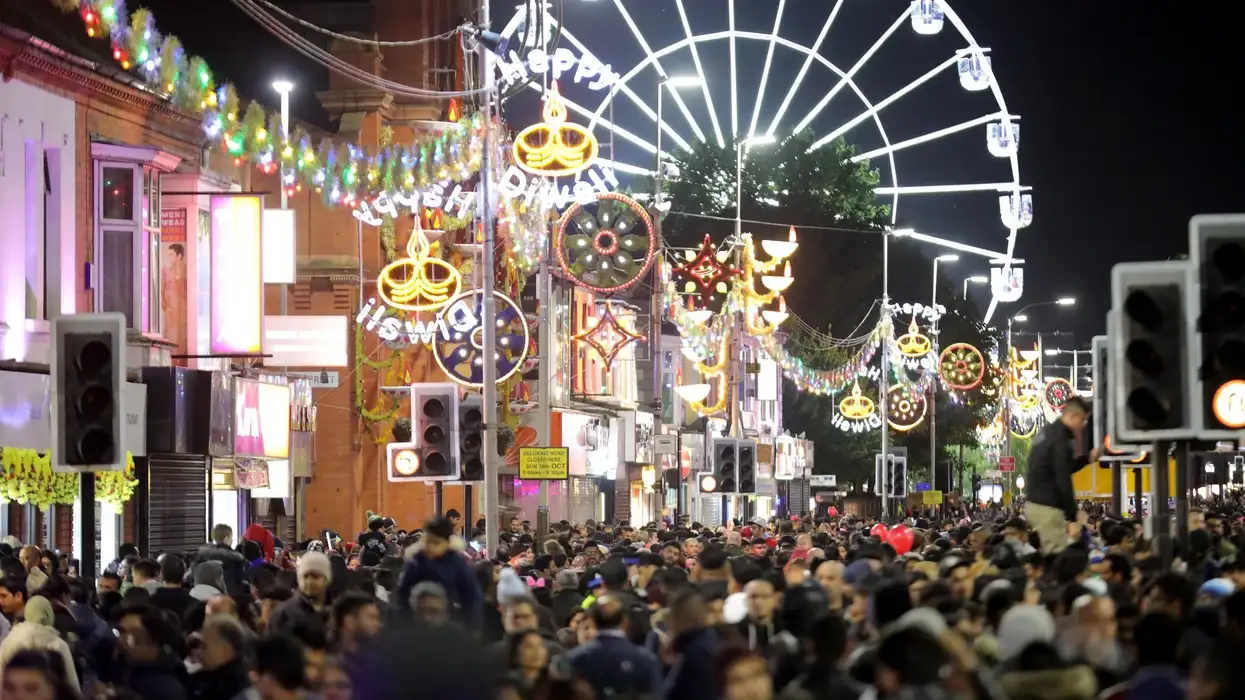THOUSANDS returned to Leicester streets to attend diwali lights switch-on after the festivities were cancelled last year due to Covid-19 pandemic.
The event to mark the start of the festival of light usually attracts about 45,000 people. But this time there were reduced number of people who gathered on the city's Belgrave Road to see lights and colour.
According to Leicester City Council, adequate measures were taken and people were asked beforehand to take the Covid test. Diwali is a festival which is celebrated by Hindus, Sikhs and Jains around the world.
The lights along Leicester's Golden Mile are usually turned on two weeks before the Diwali day, as the festivities and celebrations are believed to be the biggest outside India.
The city council said measures were in place to discourage people gathering at one place at the same time.
A stage which usually would show music and dance performances had been replaced with three big screens, which displayed a pre-recorded cultural programme and countdown.
A "Fire Garden" was set up in Cossington Park, off Belgrave Road, to replace the usual fireworks show.
Event manager Theo Crew, said: "In the past we have had 45,000 people on the site at any one time, which is a high density crowd, so this year we have created more spaces and more screens for people to spread out... we wanted to allow everyone to come along and celebrate safely."
The city council said the same measures would be in place for the Diwali festivities on 4 November.
London's Trafalgar Square event, which usually attracts 35,000 people, was held on Saturday (23) with reduced crowd and a live online stream.




